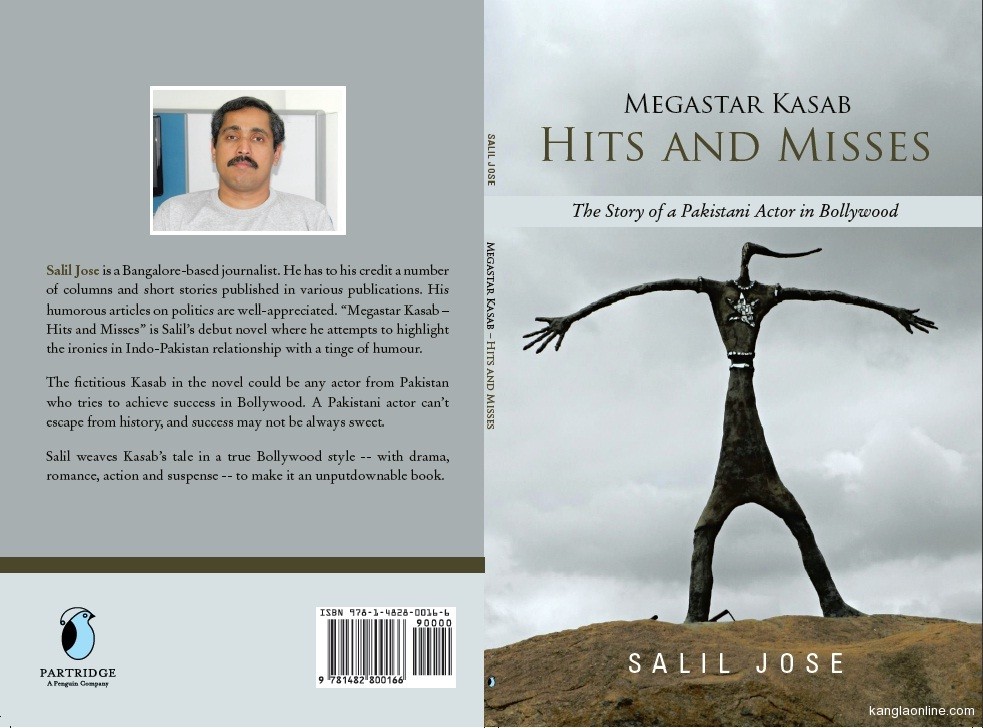Megastar Kasab’s author Salil Jose explains the ironies in Indo-Pakistan relations in an exclusive interview to Wahengbam Rorrkychand.
Though it is a short novel, journalist Salil Jose’s book ‘Megastar Kasab – Hits and Misses: The Story of a Pakistani Actor in Bollywood’ grabbed many people’s attention because of its title and unconventional theme. The novelist boldly called his protagonist Kasab, a name which most Indians hate because of its terror connections. But the Kasab in the novel is not a terrorist, but, as the subtitle of the book says, a Pakistani actor who becomes a megastar in Bollywood.
In an exclusive interview to Wahengbam Rorrkychand, Salil says he wrote the novel to explore the ironies and contradictions in Indo-Pakistan relations.
Excerpts of the Interview:

WR: What motivated you to write a novel on Indo-Pakistan relations?
SJ: Anyone who follows Indo-Pakistan relations can see a pattern in all what happens between the two neighbouring countries. For example, a few days after Indian prisoner Sarabjit Singh was attacked in a Pakistani jail, a Pakistan
i in an Indian jail was assaulted. If the Indian army kills a Pakistani soldier near LOC, the other side retorts by beheading an Indian soldier. A thaw in the relations between the two nations will be followed by a sudden terrorist attack. This pattern makes events predictable. I have tried to explore the effect of this pattern and the ironies of it on an actor from Pakistan. You may be a well-liked Pakistani in India, but you can’t escape from the effects of the contradictions in Indo-Pakistan relations.
WR: There are some graphic descriptions of killings at the end of the novel. How do you justify them?
SJ: My purpose is to give a shock to those who advocate war between both countries. I want them to realise that enmity and hatred won’t serve any purpose.
WR: Why did you use the experience of a Pakistani actor in Bollywood to explore the theme?
SJ: Many Pakistanis act in Bollywood movies. Their presence will ensure the smooth release of the Hindi movies in Pakistan, which is one of the hot markets for Bollywood. These entertainers are the most loved Pakistanis in India, unlike terrorist Kasab who happened to be the most hated Pakistani in India. Whether you are the most hated or the most loved, you can’t escape from being tossed by the contradictions in Indo-Pakistan relations.
WR: The description of the place called Aastipur is the most beautiful part in the novel. Is it a real place?
SJ: Aastipur is an imaginary place where a crucial incident in the life of the protagonist happens. I presented it as if it is located near Belgaum in Karnataka. However, I enriched the place with myths and stories from other regions to give the particular part of the novel a magic touch.
WR: How did you find time to write a novel while working as a journalist?
SJ: I got the idea of writing a novel about a Pakistani actor named Kasab a few days after terrorist Kasab was hanged. I am against death penalty. I couldn’t accept it when India revived capital punishment after years of an unofficial moratorium on it. But I would never have turned the idea into a novel had I not been challenged by a small crisis in my life. I used to wake up in the middle of the night and started writing the novel.
WR: Are you writing another novel?
SJ: I have finished the first draft of a novel on Indo-US relations. I need to rewrite it presenting the theme from different angles.
———-x———-



